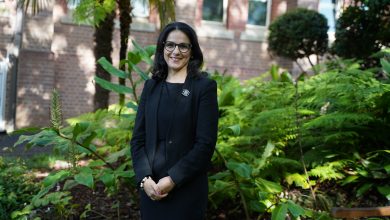Can Hospitals Help us Address the Teacher Shortage?
A proposal to adopt a clinical-style model which embeds student teachers in schools only months into their training is being proposed as one solution to the growing teacher shortage crisis. School News takes a deeper look at this model and asks educators what other options we have.

A roundtable meeting on August 12, convened by new federal Education Minister Jason Clare, will bring together education ministers, educators, and principals to discuss an Initial Teacher Education (ITE) proposal by NSW Education Minister Sarah Mitchell.
The model, piloted for five years in the Hunter region and other hubs around the country, sees teaching students employed part-time in local schools within months of starting their degree while being mentored closely by established teachers within their school.
Just like the clinical model, teaching students are embedded into the community from the very start, with the intention of attracting and retaining future teachers within the local area.
Regional Teaching Hubs
Alphacrucis University College offers a tertiary teacher training program and operates teaching hubs with dozens of schools across the country.
Designed to ‘flip the classroom’, students spend more time inside real classrooms and from an earlier stage in their degree, than with traditional universities.
Carmen Nash, recruitment and liaison coordinator at Catholic Education Wilcannia-Forbes (CEWF) outlines the benefits the hub has given the broad remote/regional area:
“While the staffing crisis is felt nationwide, the impact is even greater the further west you travel into the state. CEWF is proud to have partnered with Alphacrucis… through the establishment of our own regional teaching schools hub.”
“This new approach to teacher education flips the conventional model of teacher training by bringing nationally accredited tertiary education onsite to our own school communities.”
Nash explains that trainee teachers are employed in schools at Teacher Aids one day per week.
In addition to a school-based mentor for additional support, they also meet with a Teaching Schools Manager one day per week via zoom for insight sessions, where they receive a high level of support and system-based professional learning in a collegial group session with their peers.
Anna Plant, Teacher Training School Coordinator for the Christian Education Ministries (CEM), sees the retention of teachers as being the primary issue that needs to be addressed, and says CEM has eleven school campuses across the country which are feeling the challenge of teacher shortages, especially in the casual teacher space:
“We are planning for the future shortfall that is predicted… and have chosen to take responsibility for the training of teachers by partnering with Alphacrucis University College.”
Bishop Druitt College is also part of a Teaching Hub, and Johnstone sees it as a logical way forward in conjunction with traditional university placements. Principal Nick Johnstone says the situation leading to the teacher shortage is complicated and multi-faceted, citing falling numbers of younger teachers, teaching conditions and wages, professional and compliance requirements, excess governance and an escalation in communication demands:
“The ever-increasing role of schools, and therefore teachers, to solve societal problems coupled with the increased levels of compliance and bureaucratic paperwork needs to be addressed.”
Nash is “really encouraged and very hopeful given Sarah Mitchell’s recent comments indicating a necessity for a national approach to teacher supply in Australia, with a focus on modernising the profession through new and innovative thinking around ITE.”
“The model that we have adopted through our teaching schools hub does work, and it is my hope that the Government will recognise this need, and think carefully about the allocation of Commonwealth-supported places to ensure the longevity of initiatives just like ours.”
School News will continue to report on the topic and the upcoming roundtable in coming weeks.







